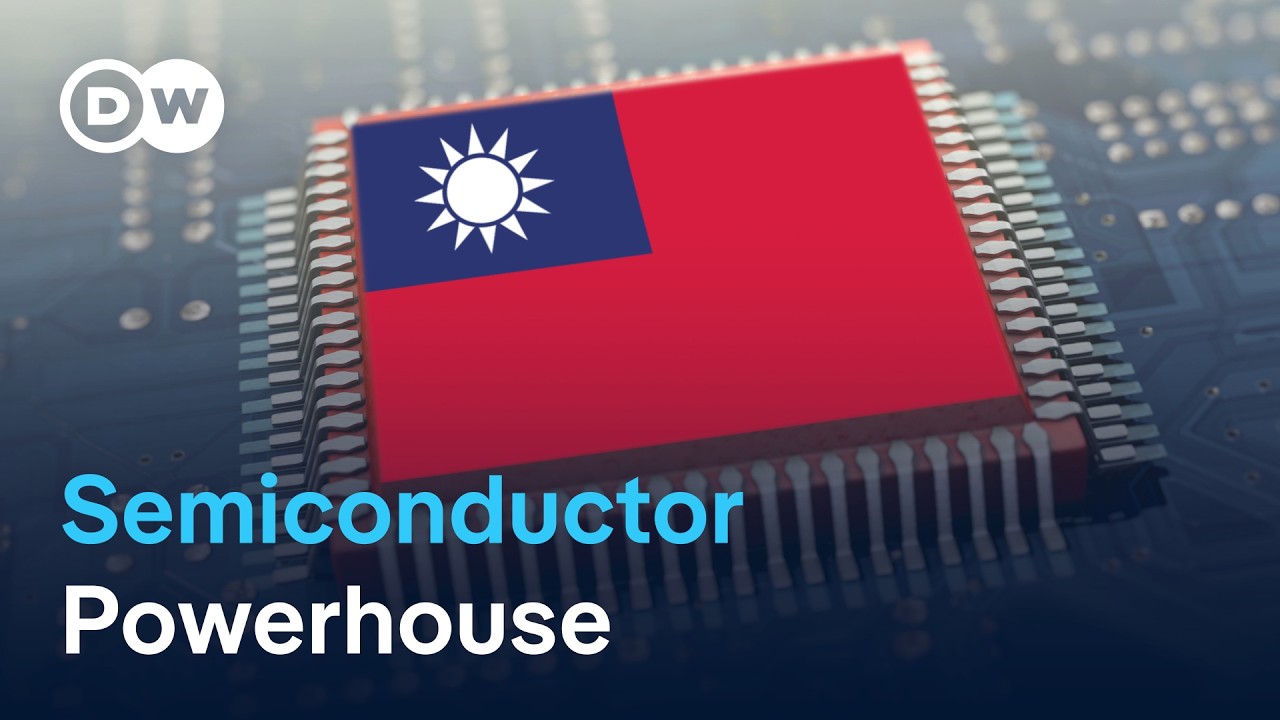The video highlights Taiwan’s pivotal role in the global semiconductor industry, particularly through TSMC, which is set to reach a trillion-dollar valuation driven by advancements in AI and packaging technologies. It also discusses the geopolitical implications of U.S.-China tensions, Taiwan’s efforts to diversify its supply chain, and the potential for increased collaboration with American companies to enhance its semiconductor capabilities amidst evolving technological demands.
The video discusses the significant role of Taiwan’s semiconductor industry, particularly in light of the growing influence of generative AI. Taiwan is recognized as a global leader in microchip production, with the Taiwan Semiconductor Manufacturing Company (TSMC) accounting for nearly two-thirds of the world’s microchips. Analysts predict that TSMC will reach a trillion-dollar valuation by the end of the year, driven largely by advancements in AI and semiconductor packaging technologies. The video highlights Taiwan’s strategic initiatives to enhance its advanced packaging capabilities, including new facilities in southern Taiwan and potential expansions in Japan.
The geopolitical landscape, particularly the tensions between the U.S. and China, has prompted Taiwan to diversify its semiconductor supply chain. The U.S. Chips Act aims to bolster domestic semiconductor manufacturing, leading TSMC to expand its operations in the U.S., including a plant in Arizona. Additionally, Europe is investing in semiconductor manufacturing through the European Semiconductor Manufacturing Company (ESMC) in Germany, a joint venture involving TSMC. Taiwan’s President, Li Ching, emphasizes the importance of leveraging semiconductor and AI advantages to strengthen democratic supply chains amid these geopolitical challenges.
Ray Yang, an international strategy consultant, discusses the impact of advanced packaging technologies on the semiconductor industry. He notes that advanced packaging can improve power management and reduce chip sizes, making it a crucial competitive advantage for TSMC. The video also touches on the relationship between generative AI and the semiconductor industry, suggesting that AI will not only drive growth but may also disrupt the entire value chain. This relationship is particularly relevant as companies seek to innovate and meet the increasing demand for advanced chips.
The video further explores the implications of generative AI on Taiwan’s semiconductor industry, highlighting the need for collaboration with American companies and research institutions. While the U.S. maintains a lead in generative AI development, Taiwan aims to integrate these innovations into its semiconductor supply chain. In contrast, China’s semiconductor industry faces challenges due to U.S. export restrictions and limitations imposed by Moore’s Law, which hinder its ability to advance beyond certain manufacturing processes.
Finally, the potential appointment of Marco Rubio as U.S. Secretary of State is discussed, with implications for Taiwan’s semiconductor industry and U.S.-Taiwan relations. The anticipated decoupling of the semiconductor industry between the U.S. and China may lead to increased collaboration between Taiwan and the U.S., as well as with other trusted allies like Japan and India. Overall, the video underscores Taiwan’s strategic position in the global semiconductor landscape and the opportunities and challenges it faces amid evolving geopolitical dynamics and technological advancements.
